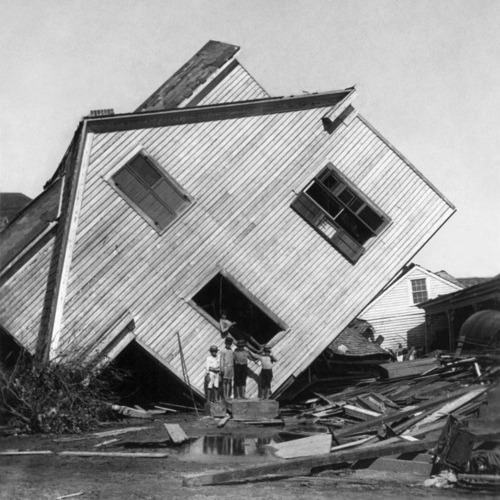This past week, our community suffered an unfathomable disaster. The suddenness and severity of the destruction was of a scale that is rarely witnessed. Within a split second, a gas explosion leveled one house, left two others heavily damaged, displaced everyone within a city block, required the attention of 175 emergency personnel, and caused at least one dear lady to lose her life. This is what defines a tragedy. They are often sudden and without warning, cause massive damage, injuries, and often have a haunting aftermath. Given this great disaster that the Tyrone community has been dealing with this past week, I thought it would be appropriate to examine some thoughts about tragedy from the Bible’s perspective.
It is interesting to note that in the English KJV Bible there are no occurrences of the words “tragic” or “tragedy”. Yet, there are no shortage of tragic events described in the pages of Scripture. The book of Job is all about tragedy in the life of someone who didn’t “deserve” it. We see tragedy in the life of Daniel, David, Noah, Joseph, the nation of Israel, and (of course) Jesus Christ himself. The Bible is full of examples of those who faced tragedies of various kinds and of how God worked through the direst of circumstances. There is much to be said about tragedy, but here are just three common reactions to it and how we can learn from the Bible’s teaching to inform our thinking in these areas:
First, when tragedy strikes, we want to understand all of the facts. We want a formal investigation to understand all of the details of how it happened, what occurred, and who was at fault. In short, we want answers. There is the immediate feeling that if we can somehow understand everything about the events leading up to the situation that occurred, we can find peace by eliminating our unknowns. However, we soon find that not every question can be answered to our satisfaction and that the answers provided do not always give us the satisfaction and closure for which we had hoped. Such was the case with Job. He had lost nearly everything and many of his own loved ones. Yet, when God revealed the reason why all of this occurred, did the answers bring Job peace? No. It was Job’s unfailing faith in God throughout the book that brought Job peace and gave him strength despite his circumstances. We would do well to learn from Job when tragedy strikes. Answers will not bring peace, but God will.
Second, when tragedy strikes, we want to make sense of it. Often tragedies are things that are exceedingly rare, random, and senseless. We can’t wrap our heads around the question of “WHY!?!” While it is true that sometimes tragedies could have been prevented, there are always others (such as natural disasters) which leave us in an utter state of helplessness and defeat. Instead of churning the question of “why?” around in our heads day and night, trying to make sense of a senseless event, we need to take advice from Isaiah 26:3. God wants us to rest in Him – to have our “mind stayed on” Him instead of an un-ending quest to make sense out of a puzzle that we may never be able to solve. Doing this gives us the peace of God because it demonstrates our trust in Him. God is still in control. He is still on the throne. We may not understand why bad things happen on this side of eternity, but there is a day coming when the Lord will reveal this to us. His ways are perfect, even in those times when He allows tragedies to occur.
Finally, when tragedy strikes, we will either turn to God or run from Him. Some will ask “If God is real, loving, and all-powerful (like the preacher says), how could He allow such a disaster to take place?” They will choose to turn from their faith, essentially blaming God for what happened. Their concept of God’s love for them will be tarnished and they may feel that they have been told a lie about whether there even is a God at all. For those who may be feeling this way, may I confront a few fallacies in this thinking? First, just because God loves you does not mean that he will shield you from all pain and harm. We still live in a world decaying from sin and tragedies are a result of that sin. Sometimes we need to go through difficulties for our greater good. Second, tragedies provide no evidence against the reality of God or his all-powerful nature. The Bible tells us that God exists and so does the majesty of this world and universe that we live in. “The invisible things of him from the creation of the world are clearly seen, being understood by the things that are made, even his eternal power and Godhead” (Romans 1:20).
Don’t let a tragedy shake your faith. Instead, allow it to be a turning point where you recognize that the only constant source of hope and help in time of need is God Himself. Allow Psalm 46:1 to come alive in these circumstances – “God is our refuge and strength, a very present help in trouble.” Run to Him. He is your refuge. He is your strength. He is your peace. He loves you and wants this kind of relationship with you through faith in His Son Jesus Christ. Turn to Him. He is our only constant in this life – especially when tragedy strikes!

